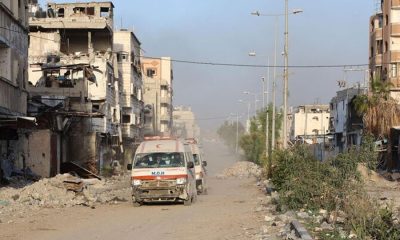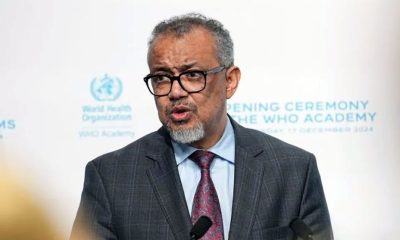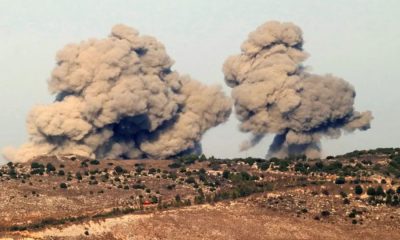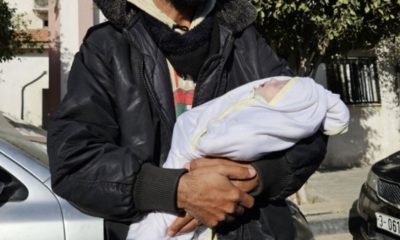International
Netanyahu: Israel will not leave Gaza border corridor until …
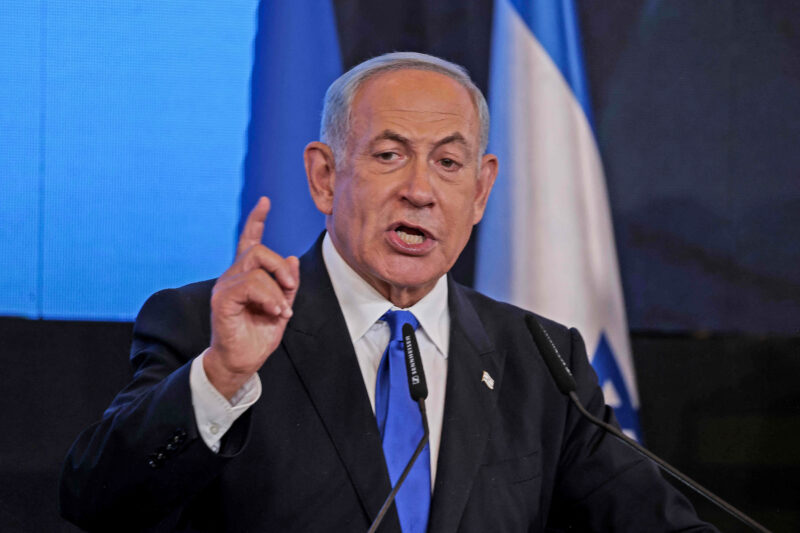
Netanyahu: Israel will not leave Gaza border corridor until …
JERUSALEM: Israeli Prime Minister Benjamin Netanyahu said on Wednesday that Israel will only agree to a permanent ceasefire in Gaza that guarantees the border area between southern Gaza and Egypt could never be used as a lifeline for Hamas.
“Until that happens, we’re there,” he told a news conference in Jerusalem.
Netanyahu repeated his outright rejection of a withdrawal from the so-called Philadelphi corridor in the first phase of a deal, expected to last 42 days, saying international pressure would make it effectively impossible to return.
For a permanent ceasefire to be agreed upon after that, Israel would need guarantees that whoever ran postwar Gaza would be able to prevent the corridor from being used as a route for smuggling weapons and supplies for Hamas.
“Somebody has to be there,” he said. “Bring me anyone who will actually show — not on paper, not in words, not on a slide — but day after day, week after week, month after month, that they can actually prevent a recurrence of what happened there before,” he said, referring to Hamas’ Oct. 7 attack on Israel.
“We’re open to consider it, but I don’t see that happening right now.”
READ ALSO:
- U-20 Women’s W’Cup: Nigeria loses 1-3 to Germany, face Venezuela
- Abducted Ekiti traveller killed, mother freed after N10m ransom payment
- Three domestic workers murder Ondo popular CEO
The Philadelphi corridor, along the southern edge of the Gaza Strip bordering Egypt, has been one of the main obstacles to a deal to halt the fighting in Gaza and bring Israeli hostages home in exchange for Palestinian prisoners.
Netanyahu has insisted on retaining control of the corridor, where Israeli troops have uncovered dozens of tunnels that officials say have been used to supply Hamas with weapons and ammunition.
The prime minister has faced heavy criticism from many in Israel for holding out on the issue, including from many in his own security establishment who believe Israeli troops can make targeted interventions if needed to prevent any smuggling.
The families of many hostages, including some of the six whose bodies were recovered from a tunnel in southern Gaza on Sunday, have accused him of sacrificing their loved ones by insisting on keeping troops in the corridor.
But he said maintaining pressure on Hamas was the best way to return the 101 hostages still remaining in Gaza.
“You need to squeeze them, to put pressure on them to release the remaining hostages. So if you want to release the hostages, you’ve got to control the Philadelphi corridor,” he said.
Netanyahu: Israel will not leave Gaza border corridor until …
International
Visa: UK raises salary entry requirement for skilled workers

Visa: UK raises salary entry requirement for skilled workers
The UK government has announced an update to its immigration rules, notably increasing salary thresholds for Skilled Worker visas.
This change is targeted at ensuring that only highly skilled and well-compensated workers are able to access the UK job market, with some salary requirements rising by as much as 82%.
Effective from January 1, 2025, the minimum salary for most applicants will rise from £26,200 to £38,700.
This adjustment is projected to impact a wide range of industries, including technology, healthcare, and engineering, making it more challenging for workers to obtain a Skilled Worker visa without a higher-paying job offer.
For applicants with a relevant PhD, the salary threshold will also increase from £23,800 to £34,830, while those holding a relevant STEM PhD will need to meet a higher threshold of £30,960, up from £20,960.
Jobs on the shortage occupation list and new entrants to the workforce will also see their salary requirement increase to £30,960.
READ ALSO:
- Jigawa bride detained after poisoning reception food, groom hospitalised
- How to apply for Germany visa using the new application portal
- Manchester United to use Marcus Rashford in swap deal for Victor Osimhen
“This increase signifies the government’s plan to ensure that only the most qualified individuals can access the Skilled Worker visa programme,” said a government spokesperson.
The raised thresholds are based on median salary figures, which will further narrow the pool of eligible applicants to the highest earners in their fields.
According to DAAD Scholarship, these changes present both challenges and opportunities for job seekers aiming to work in the UK.
“Workers in fields such as software development, engineering, and healthcare will now need to secure job offers that meet the new salary thresholds,” the scholarship noted.
Furthermore, the 20% discount for shortage occupation roles will be removed under the new system.
Visa: UK raises salary entry requirement for skilled workers
International
Two dead after small plane crashes into California building
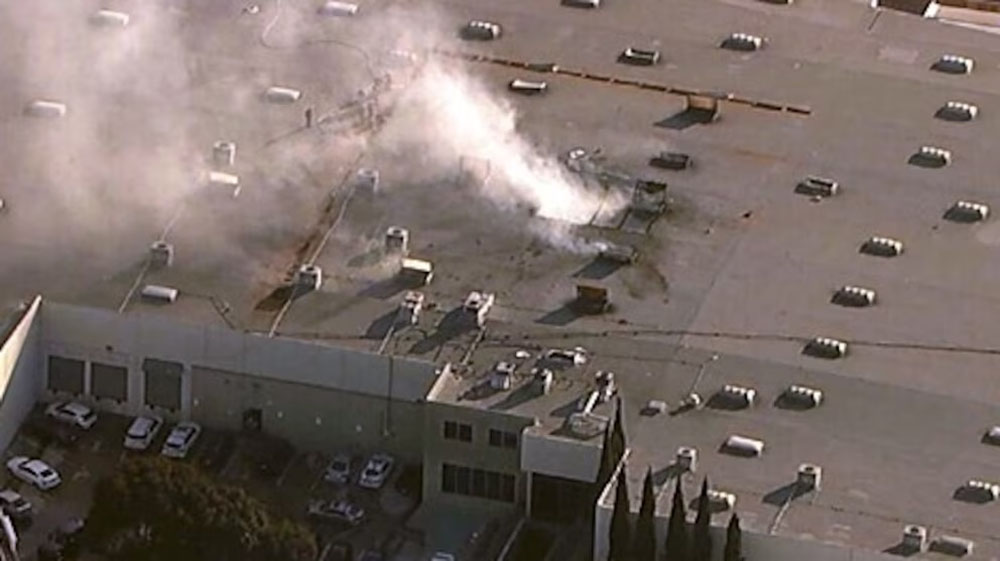
Two dead after small plane crashes into California building
Two people have died and 18 others were injured after a small plane crashed into a commercial building in southern California, officials say.
Ten people were taken to hospital with injuries, the Fullerton Police Department said in a post on X on Thursday afternoon. Eight others were treated for injuries and released at the scene.
The single-engine Van’s RV-10 crashed at 14:15PST (20:15GMT), according to the Federal Aviation Administration.
Officials have provided no further details about how the crash occurred. It is unclear whether the two people who died were workers or were on board the plane.
Police say they are evacuating buildings in the area, and are asking the public to stay away from the crash site.
Congressman Lou Correa, who represents the area of Orange County, about 25 miles (40km) south of Los Angeles, said that the building that was struck is a furniture manufacturing business.
In a post on X, Correa said that at least a dozen of the victims are factory workers.
READ ALSO:
- Vegas Tesla blast suspect shot himself in head – Officials
- Mob lynches woman accused of witchcraft in Benue
- Mosques should be research centres – Varsity don
Aerial photos of the scene show parts of the plane inside the building. The crash also sparked a fire which was extinguished by fire crews.
Security footage recorded from a building across the street shows a fiery explosion, according to local news outlets.
“People are just shaken over the situation,” witness Mark Anderson told KRCA-TV.
“It was just a large boom, and then one of the people went out and said, ‘Oh my gosh, the building’s on fire.'”
The area where the plane crashed is near the Fullerton Municipal Airport, about 6 miles (10 kilometers) from Disneyland.
The plane appears to have been turning back to the airport shortly after takeoff, according to KRCA-TV.
Around 100 people were ultimately evacuated from the Michael Nicholas Designs furniture factory, according to the Orange County Register newspaper.
Juanita Ramirez, an employee, told the newspaper that she heard a loud bang before seeing a large ball of fire flying towards her.
“It felt like a dream,” she said.
This is the second plane to crash in the area in the past two months, according to CBS, the BBC’s US partner.
On 25 November, another plane crashed into a tree roughly one block away from this most recent crash. No major injures were reported in that crash.
Two dead after small plane crashes into California building
BBC
International
Vegas Tesla blast suspect shot himself in head – Officials
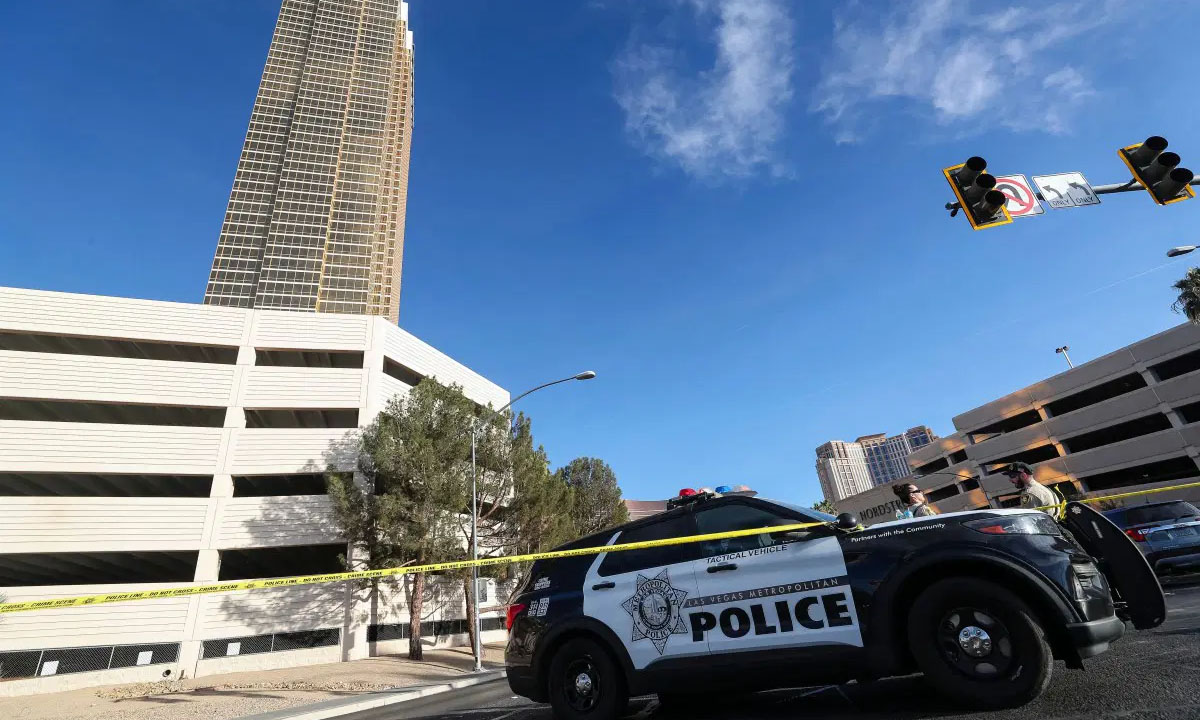
Vegas Tesla blast suspect shot himself in head – Officials
The decorated US special forces soldier who blew up a Tesla Cybertruck outside the Trump International Hotel in Las Vegas apparently shot himself in the head before the blast, authorities said Thursday, adding that his motivation was still “unknown.”
Matthew Livelsberger, 37, a member of the elite Green Berets, appears to have committed suicide in the rented vehicle filled with fuel containers and fireworks, which then erupted into flames, officials said.
Livelsberger’s body was burned beyond recognition but Las Vegas Sheriff Kevin McMahill said the authorities had “a lot of confidence” that he was the sole occupant of the Cybertruck.
Livelsberger, identified through his military ID, passport and credit cards, had a gunshot wound to the head and a gun was found at his feet, McMahill told reporters at a press conference in Las Vegas.
“The motivation at this point is unknown,” FBI Special Agent Spencer Evans said.
Evans said there is “no information that we’re aware of right now that connects this individual to any terrorist organization around the world.”
Kenny Cooper, a special agent with the Bureau of Alcohol, Tobacco, Firearms and Explosives, said Livelsberger had legally purchased two semi-automatic handguns on Monday which were found in the remains of the vehicle.
Video footage outside the Trump hotel shows the stainless steel truck parked at the building’s glass entrance early Wednesday, then bursting into flames, followed by smaller explosions that appeared similar to fireworks.
READ ALSO:
- Mob lynches woman accused of witchcraft in Benue
- Mosques should be research centres – Varsity don
- Panic as huge space object crashes into Kenyan village
Seven people were wounded in the blast.
– No link with New Orleans attack –
The Trump-branded building, which opened in 2008, is part-owned by the Republican president-elect’s family business.
Evans said the link to the president-elect was “not lost” on investigators, nor was the fact that Tesla is owned by world’s richest man — and prominent Trump backer — Elon Musk.
“But we don’t have information at this point that definitively tells us” it was driven by any particular ideology, he said.
Livelsberger rented the vehicle in Colorado on December 28, from where authorities tracked him driving it alone through Arizona and New Mexico to Las Vegas, which he reached on January 1, Kevin McMahill said.
McMahill said Livelsberger was a Green Beret who had been deployed to Afghanistan in 2009 and was currently stationed in Germany.
An army spokesperson said Livelsberger was “on approved leave at the time of his death,” and that he had been awarded multiple Bronze Star Medals, including one for valor.
Investigators said it was not yet clear how the blast detonated, but the components were mainly consumer products like fireworks and fuel.
They said some of the components had not exploded, and that the level of sophistication in the blast was not what they would expect from someone with Livelsberger’s military background.
“I just don’t think it was done as well as he was expecting it to be done,” McMahill said.
The blast came just hours after a pickup truck plowed into a crowd of revelers in the French Quarter of New Orleans, killing at least 14 people and injuring dozens.
Initially investigators were probing potential links between the events, but authorities in New Orleans said Thursday they believe the Islamic State-inspired attacker there acted alone, while the FBI described the Vegas incident as “isolated.”
Vegas Tesla blast suspect shot himself in head – Officials
-

 metro1 day ago
metro1 day ago‘Deepen Shariah knowledge to curb misinformation’
-
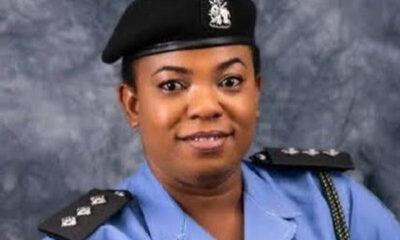
 metro1 day ago
metro1 day agoIlorin: Retired works controller murdered on New Year’s Day
-

 metro1 day ago
metro1 day agoJealous husband stabs Bishop to death over allege affair with wife
-

 metro1 day ago
metro1 day agoTinubu’s refusal to honour Seyi’s pact with us disappointing – Nnamdi Kanu’s family
-

 Politics3 days ago
Politics3 days agoHow Tinubu outsmarted Buhari to become president – Ojudu
-

 metro19 hours ago
metro19 hours agoMosques should be research centres – Varsity don
-

 metro3 days ago
metro3 days agoHorror in Ogun as twin brothers kill, dismember sex worker
-

 metro8 hours ago
metro8 hours agoYouths beat Osun monarch for appointing Imam on disputed community



